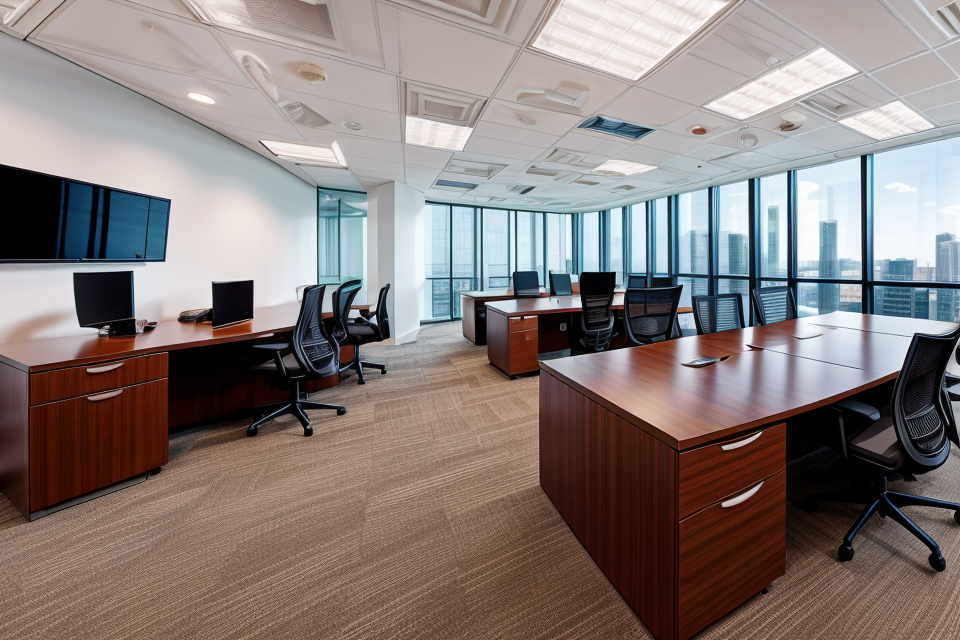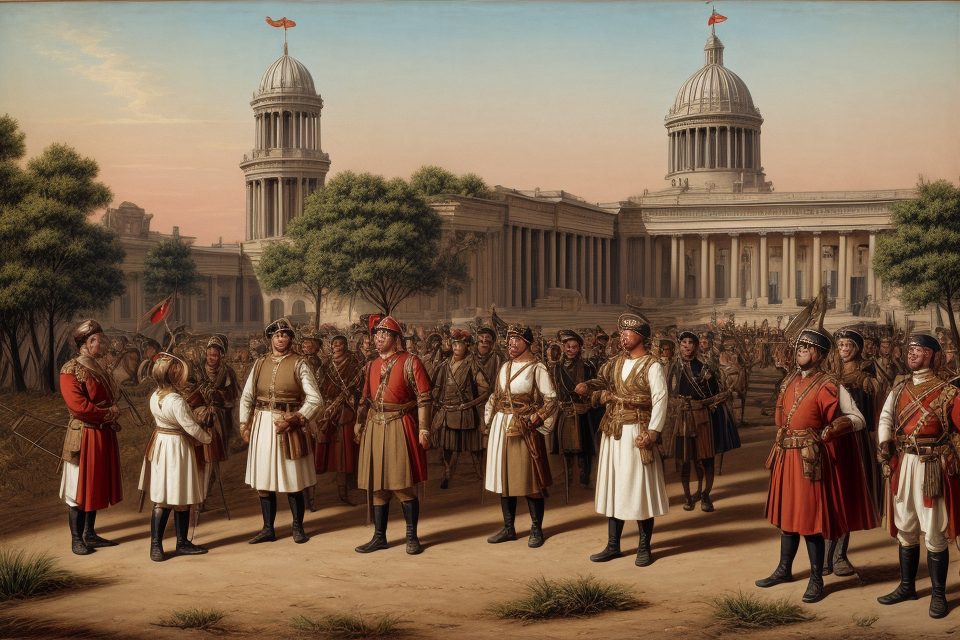
In today’s fast-paced business world, delivering consistent and high-quality products or services is crucial for success. Customers expect a certain level of quality and uniformity from the brands they interact with, and it’s essential for businesses to meet those expectations. This article will explore the importance of uniform quality in businesses and how customization can play a vital role in achieving it. From building brand reputation to increasing customer satisfaction, this article will delve into the reasons why uniform quality is crucial for businesses in the modern era.
Understanding the importance of uniform quality
Factors affecting uniform quality
Fabric quality
Uniform quality is affected by the fabric used to make the garment. High-quality fabric ensures that the uniform is durable, comfortable, and can withstand frequent wear and tear. It is important to select a fabric that is appropriate for the intended use of the uniform. For example, a uniform for a construction worker should be made of a heavier, more durable fabric than a uniform for an office worker.
Workmanship
The quality of the workmanship is also crucial in determining the overall quality of the uniform. This includes factors such as stitching, fitting, and finishing. A well-made uniform will not only look professional but will also last longer and be more comfortable to wear. It is important to work with a reputable uniform supplier who has a track record of producing high-quality garments.
Customization options
Customization options are becoming increasingly important in today’s business world. Many companies require their employees to wear uniforms that are tailored to their specific needs and preferences. Customization options can include things like embroidered logos, custom sizes, and specialized design features. Offering customization options can help to increase employee satisfaction and make the uniform feel more personalized.
Overall, the quality of a uniform is crucial for businesses. A well-made uniform not only looks professional but also helps to promote a sense of unity and pride among employees. By considering factors such as fabric quality, workmanship, and customization options, businesses can ensure that their uniforms meet their specific needs and provide a positive image to their customers.
The impact of uniform quality on businesses
- Employee morale
- Uniforms can boost employee morale by creating a sense of unity and belonging among employees.
- Employees who feel a sense of pride in their workplace and their appearance are more likely to be motivated and engaged.
- Customized uniforms can further enhance this sense of pride and make employees feel valued and appreciated.
- Customer perception
- Uniform quality can have a significant impact on customer perception.
- Poorly made or ill-fitting uniforms can create a negative impression of the business and its products or services.
- Customization can help ensure that uniforms are well-made and fit well, leading to a more positive customer perception.
- Brand identity
- Uniform quality is closely tied to brand identity.
- Customized uniforms can help businesses establish a unique and recognizable brand image.
- High-quality, customized uniforms can help reinforce the business’s brand identity and values, creating a cohesive and professional image.
Customization options for uniforms
Types of customization
Customization options for uniforms offer businesses the opportunity to create a unique image for their brand. With various types of customization available, businesses can choose the method that best suits their needs and budget. Some of the most popular types of customization include:
- Embroidery: Embroidery is a popular method of customization for uniforms. It involves sewing a design onto the fabric using a needle and thread. This method is popular because it offers a high-quality, professional look that can be used for both casual and formal uniforms.
- Screen printing: Screen printing is another popular method of customization for uniforms. It involves transferring a design onto the fabric using a stencil and ink. This method is ideal for larger designs and is often used for t-shirts and other casual uniforms.
- Tackle twill: Tackle twill is a type of embroidery that is used to create a raised design on the fabric. This method is popular for creating logos and other designs that need to stand out.
- Direct-to-garment printing: Direct-to-garment printing is a newer method of customization that involves printing a design directly onto the fabric using a printer. This method is ideal for small runs and is often used for creating custom t-shirts and other casual uniforms.
Each of these customization methods has its own unique benefits and drawbacks, and businesses should carefully consider their options before choosing a method. By choosing the right customization method, businesses can create a unique image for their brand and stand out from the competition.
Benefits of customization
- Increased employee satisfaction
- Providing employees with customized uniforms can increase their sense of belonging and pride in their workplace.
- Customization options such as name tags or embroidered initials can make employees feel more personally invested in their uniforms.
- This increased satisfaction can lead to higher morale and motivation among employees.
- Enhanced brand recognition
- Customized uniforms can help businesses stand out and create a unique brand identity.
- Consistent use of customized uniforms across all staff members can create a cohesive and professional image for the business.
- This enhanced brand recognition can lead to increased customer recognition and loyalty.
- Improved customer loyalty
- Customized uniforms can help customers recognize and remember employees, leading to increased familiarity and trust.
- Uniforms that are tailored to the business’s branding can create a more positive and memorable experience for customers.
- This improved customer loyalty can lead to increased customer retention and repeat business.
The role of technology in uniform customization
Advancements in technology
Digital design tools
Digital design tools have revolutionized the way uniforms are designed and customized for businesses. With the help of these tools, businesses can create detailed designs of their uniforms, making it easier to visualize the final product. Digital design tools also allow for easy modification of designs, which is essential when customizing uniforms for businesses.
Online ordering systems
Online ordering systems have made it easier for businesses to customize their uniforms. With these systems, businesses can place orders online, select their desired customization options, and receive their uniforms within a short period. Online ordering systems also provide businesses with access to a wide range of customization options, which was previously difficult to achieve.
Automated production processes
Automated production processes have made it possible for businesses to customize their uniforms at scale. With automated production processes, businesses can produce customized uniforms quickly and efficiently, reducing the time and cost associated with traditional production methods. Automated production processes also ensure consistency in the quality of customized uniforms, which is essential for businesses that require a large number of uniforms.
Benefits of technology
- Increased efficiency: The use of technology in uniform customization allows businesses to streamline their processes, reducing the time it takes to create custom uniforms. This means that businesses can quickly and easily meet the unique needs of their customers, without sacrificing quality.
- Greater design flexibility: Technology has made it possible for businesses to offer a wider range of customization options to their customers. This includes everything from choosing the fabric and color of the uniform to adding custom logos and branding. By offering more customization options, businesses can create a more personalized experience for their customers, which can lead to increased customer satisfaction and loyalty.
- Cost savings: In the past, custom uniforms were often expensive and time-consuming to produce. However, with the help of technology, businesses can now create custom uniforms more efficiently and at a lower cost. This means that businesses can offer custom uniforms to their customers without having to raise their prices, making customization more accessible to a wider range of customers.
The impact of uniform customization on the environment
Sustainable customization options
Customizing uniforms can have a significant impact on the environment. However, businesses can mitigate this impact by opting for sustainable customization options. These options allow companies to create personalized uniforms while reducing their environmental footprint. Some sustainable customization options include:
- Organic cotton: Organic cotton is a sustainable alternative to conventional cotton. It is grown without the use of synthetic pesticides and fertilizers, which can harm the environment. Organic cotton is also more durable and requires less water to grow, making it a more eco-friendly option.
- Recycled materials: Using recycled materials to create customized uniforms is another sustainable option. Recycled polyester, for example, is made from plastic bottles that would otherwise end up in landfills. By using recycled materials, businesses can reduce their carbon footprint and conserve natural resources.
- Eco-friendly production processes: Finally, businesses can choose eco-friendly production processes to create customized uniforms. This can include using renewable energy sources, reducing water usage, and implementing waste reduction strategies. By choosing eco-friendly production processes, businesses can minimize their environmental impact while still creating personalized uniforms.
Benefits of sustainable customization
Customizing uniforms can have a significant impact on the environment. However, by implementing sustainable customization practices, businesses can reap several benefits that not only help reduce their environmental footprint but also enhance their brand reputation and ensure compliance with environmental regulations.
Reduced environmental impact
One of the primary benefits of sustainable customization is the reduced environmental impact it creates. Traditional methods of manufacturing uniforms often involve the use of non-sustainable materials and resources, which contribute to waste and pollution. By customizing uniforms using sustainable materials and practices, businesses can reduce their carbon footprint and minimize their impact on the environment.
Enhanced brand reputation
Another benefit of sustainable customization is the positive impact it can have on a business’s brand reputation. Consumers are becoming increasingly environmentally conscious, and businesses that demonstrate a commitment to sustainability are often viewed more favorably. By customizing uniforms using sustainable practices, businesses can enhance their brand reputation and differentiate themselves from competitors.
Compliance with environmental regulations
In addition to reducing their environmental impact and enhancing their brand reputation, sustainable customization can also help businesses comply with environmental regulations. Many industries are subject to strict environmental regulations, and failure to comply can result in significant fines and penalties. By customizing uniforms using sustainable materials and practices, businesses can ensure compliance with these regulations and avoid potential legal issues.
Overall, the benefits of sustainable customization are clear. By implementing sustainable customization practices, businesses can reduce their environmental impact, enhance their brand reputation, and ensure compliance with environmental regulations.
The future of uniform customization
Emerging trends
3D printing
In recent years, 3D printing technology has advanced significantly, enabling businesses to create customized uniforms quickly and efficiently. This technology allows businesses to produce custom-fit uniforms with unique designs and logos, making them stand out from their competitors. Additionally, 3D printing technology can be used to create prototypes and samples, which can be tested and refined before mass production. This helps businesses ensure that their uniforms meet the highest quality standards and provide a perfect fit for their employees.
Virtual reality design tools
Virtual reality (VR) design tools are becoming increasingly popular in the fashion industry, including uniform customization. These tools allow businesses to create virtual prototypes of their uniforms, which can be tested and modified before they are produced. This helps businesses save time and money by avoiding costly mistakes and ensuring that their uniforms meet their exact specifications. Additionally, VR design tools can provide a more immersive experience for employees, allowing them to visualize how the uniforms will look and feel before they are produced.
Personalized fit technologies
Personalized fit technologies are changing the way businesses approach uniform customization. These technologies use advanced algorithms and data analysis to create custom-fit uniforms based on an employee’s individual measurements. This ensures that each employee receives a uniform that fits them perfectly, providing comfort and mobility throughout their workday. Additionally, personalized fit technologies can be integrated with other customization options, such as fabric choices and design elements, to create truly unique uniforms that reflect each employee’s individual style and preferences.
Overall, these emerging trends in uniform customization are transforming the way businesses approach their uniform programs. By leveraging advanced technologies and innovative design techniques, businesses can create customized uniforms that not only meet their specific needs but also enhance their brand identity and employee satisfaction.
The importance of staying ahead of the curve
Competitive advantage
In today’s fast-paced business environment, staying ahead of the curve is crucial for maintaining a competitive advantage. Customized uniforms can help businesses differentiate themselves from their competitors and create a unique brand identity. By offering customized uniforms that reflect their company’s values and mission, businesses can stand out in a crowded marketplace and attract customers who appreciate their attention to detail.
Adapting to changing consumer preferences
Consumer preferences are constantly evolving, and businesses must adapt to stay relevant. Customized uniforms allow businesses to cater to changing preferences by offering a range of options, such as different colors, styles, and materials. By providing customization options, businesses can show that they are responsive to their customers’ needs and preferences, which can enhance customer loyalty and satisfaction.
Enhancing the employee experience
Finally, staying ahead of the curve in terms of uniform customization can also enhance the employee experience. Customized uniforms can boost employee morale and create a sense of pride and belonging among employees. By allowing employees to choose their own uniforms or personalize them in some way, businesses can demonstrate their commitment to employee satisfaction and well-being. In addition, customized uniforms can help employees feel more comfortable and confident in their work attire, which can improve their overall performance and productivity.
FAQs
1. Why is uniform quality important for businesses?
Answer: Uniform quality is crucial for businesses because it ensures that customers receive consistent products or services. This is especially important for businesses that rely on repeat customers, as inconsistent quality can lead to customer dissatisfaction and lost revenue. In addition, uniform quality helps businesses maintain their reputation and brand image, as customers come to expect a certain level of quality from a business’s products or services.
2. How does customization fit into the importance of uniform quality?
Answer: Customization can play a role in maintaining uniform quality by allowing businesses to tailor their products or services to meet the specific needs and preferences of their customers. This can help businesses stand out from their competitors and attract new customers. In addition, customization can help businesses ensure that their products or services are aligned with their brand image and values, which can help maintain their reputation and customer loyalty.
3. What are some challenges businesses may face in maintaining uniform quality?
Answer: Maintaining uniform quality can be challenging for businesses, particularly if they have multiple locations or employees who are responsible for producing products or delivering services. One challenge is ensuring that all employees are trained and follow the same procedures to maintain quality standards. Another challenge is sourcing high-quality materials or components that meet the business’s standards. Additionally, changes in technology or consumer preferences can also pose challenges to maintaining uniform quality.
4. How can businesses ensure uniform quality in their products or services?
Answer: Businesses can ensure uniform quality by implementing quality control measures such as standard operating procedures, quality checklists, and regular audits. These measures can help ensure that employees are following the same procedures and using the same materials to produce products or deliver services. Businesses can also establish relationships with suppliers who can provide high-quality materials or components that meet their standards. Additionally, businesses can invest in training and development programs to ensure that employees have the skills and knowledge necessary to maintain quality standards.


